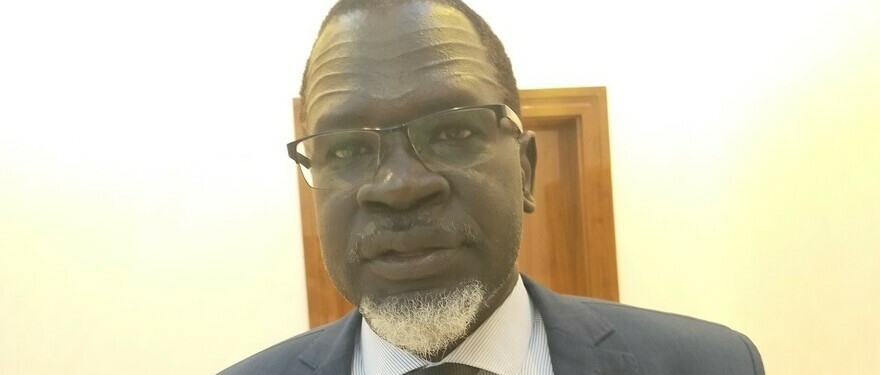South Sudan’s National Constitutional Review Commission (NCRC) has called for urgent funding to start public consultations on the proposed permanent constitution.
The NCRC is a mechanism tasked to draft a permanent constitution under the 2018 revitalized peace agreement.
Speaking to Radio Tamazuj over the weekend, NCRC Chairperson Riang Yer Zuor said that despite having adopted several documents to guide their work, the commission needs funding to start public consultations.
“We have been working since Monday (last week) on a number of documents, about five of them. One of them is the rules of procedure; the other is the action plan for the commission; we worked on a budget, we worked on the organogram, and then we worked on identifying constitutional issues and principles to work. For example, the rules of procedure, we reviewed the first draft that was presented to the plenary, we revised it, then we adapted it with a number of changes to be made,” Yier said.
He further said the team also developed an action plan and modified all other crucial documents that needed to be reviewed.
Yier said a technical team would handle the issue of timelines for the commission’s work and make aggregations amidst frustrations over the lack of budgetary allocation to the commission.
“We know that we will start from this point to this point but now we cannot say that we will start from this point because the budget of the commission has not yet been approved and we can only set a beginning time when we will have the resources,” he said.
“All that we need to do is to have a beginning point and end point, whether it ends in six months or seven months or twelve months, which is something that we will have to come to when we make the aggregation,” he added.
The NCRC chairperson appealed to the transitional government to make resources available to expedite their work.
“We know that there is a commitment from the government to fund the process because there is a need for this process to conclude but it needs the resources to be made available and the budget has been submitted. What we are requesting is for the process of approval to be expedited so that we begin as quickly as possible,” Yier emphasized.
Meanwhile, Edmund Yakani, Executive Director of the Community Empowerment for Progress Organization (CEPO), said the team will be working on an outreach program after adopting the action plan on how to roll out civic education and public consultations.
He said the commission will work together to design an outreach program but warned that no results would be achieved in the roadmap until the government avail the money.
“I’m calling upon the leadership of the country to avail resources for the commission because it is very important. Availability of resources in an adequate and timely manner demonstrates the political will of the leadership for enactment of this permanent constitution,” Yakani said.
Yakani, who is a political observer, emphasized that the permanent constitution is a prerequisite for the conduct of elections in December 2024. “So if they really wish to have elections, then it is essential to finance this commission to roll out the civic engagement,” Yakani said.
He revealed that the commission also discussed the content of the new constitution in terms of what the constitution entails, the question of the presidential term limit, the system of governance and checks and balances with reference to the independence of the organs of the government, separation of powers and security and defense acts.
Yakani said the team also corrected the language that covers issues related to persons with disabilities because the current interim constitution refers to them as “persons with special needs” but the draft constitution refers to them as “Persons with disabilities.”
He said civil society groups will roll out civic engagements from next month to allow citizens to actively participate in the constitution-making process.
“We cannot wait for the commission. We will roll out our civic engagement with the citizens, and the citizens should effectively participate in the constitution-making process,” Yakani stated.




